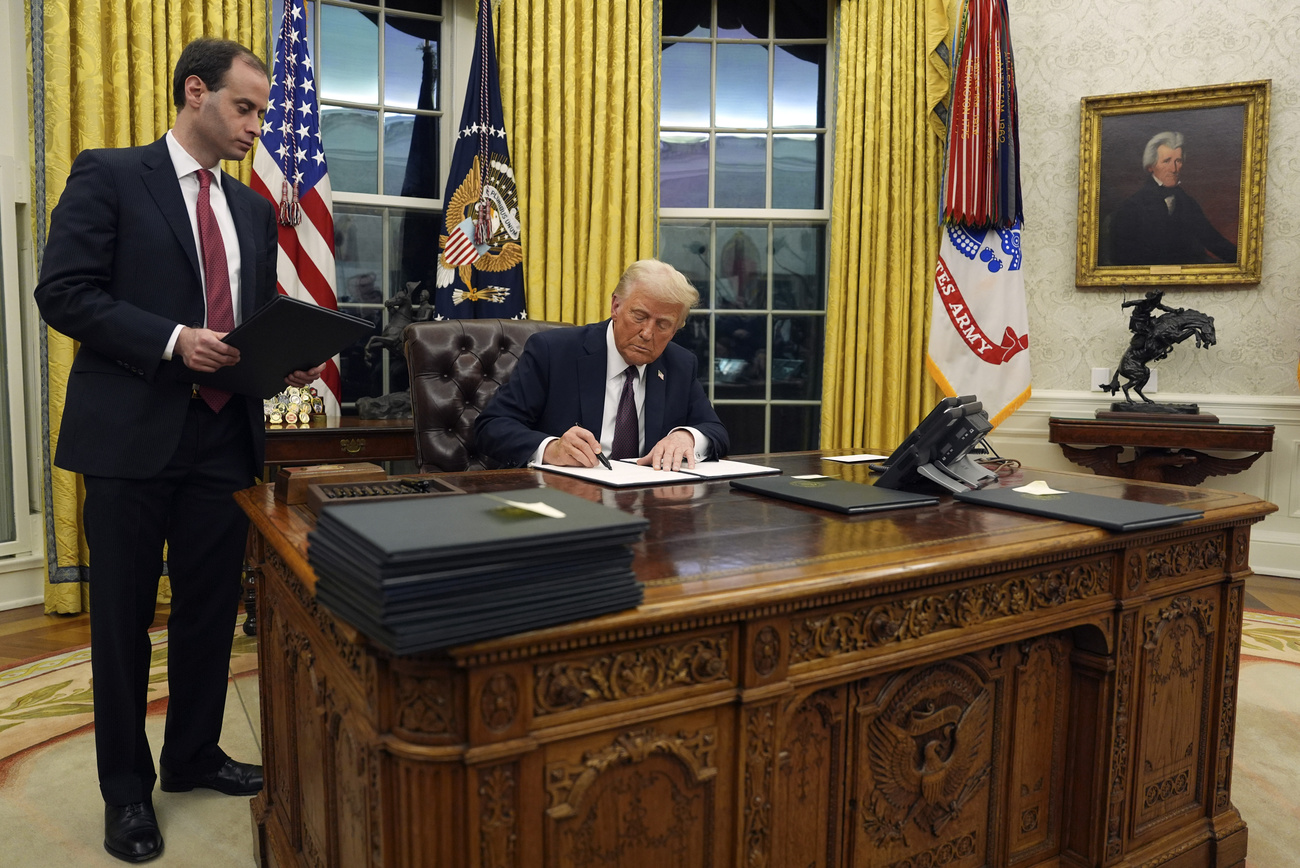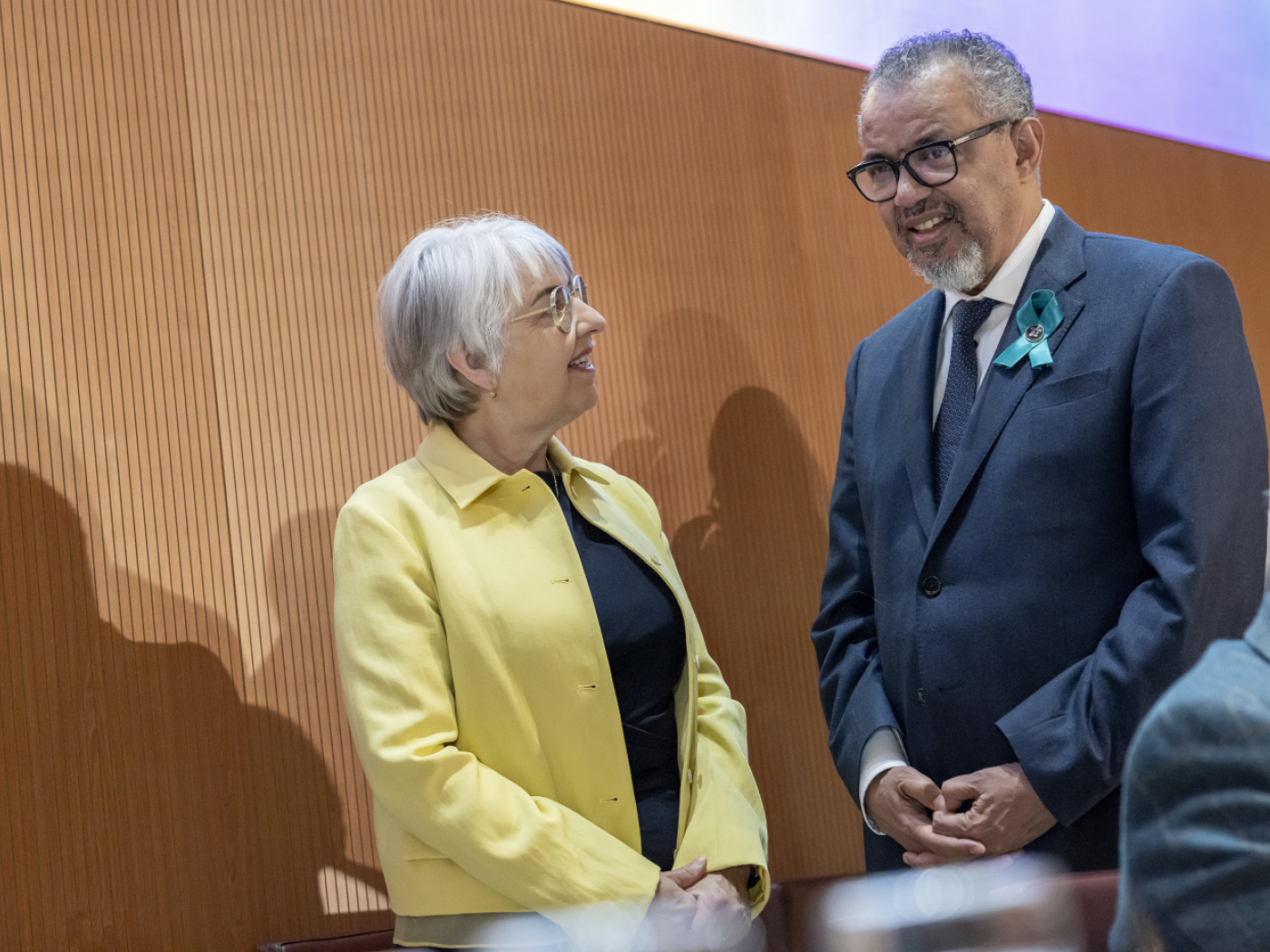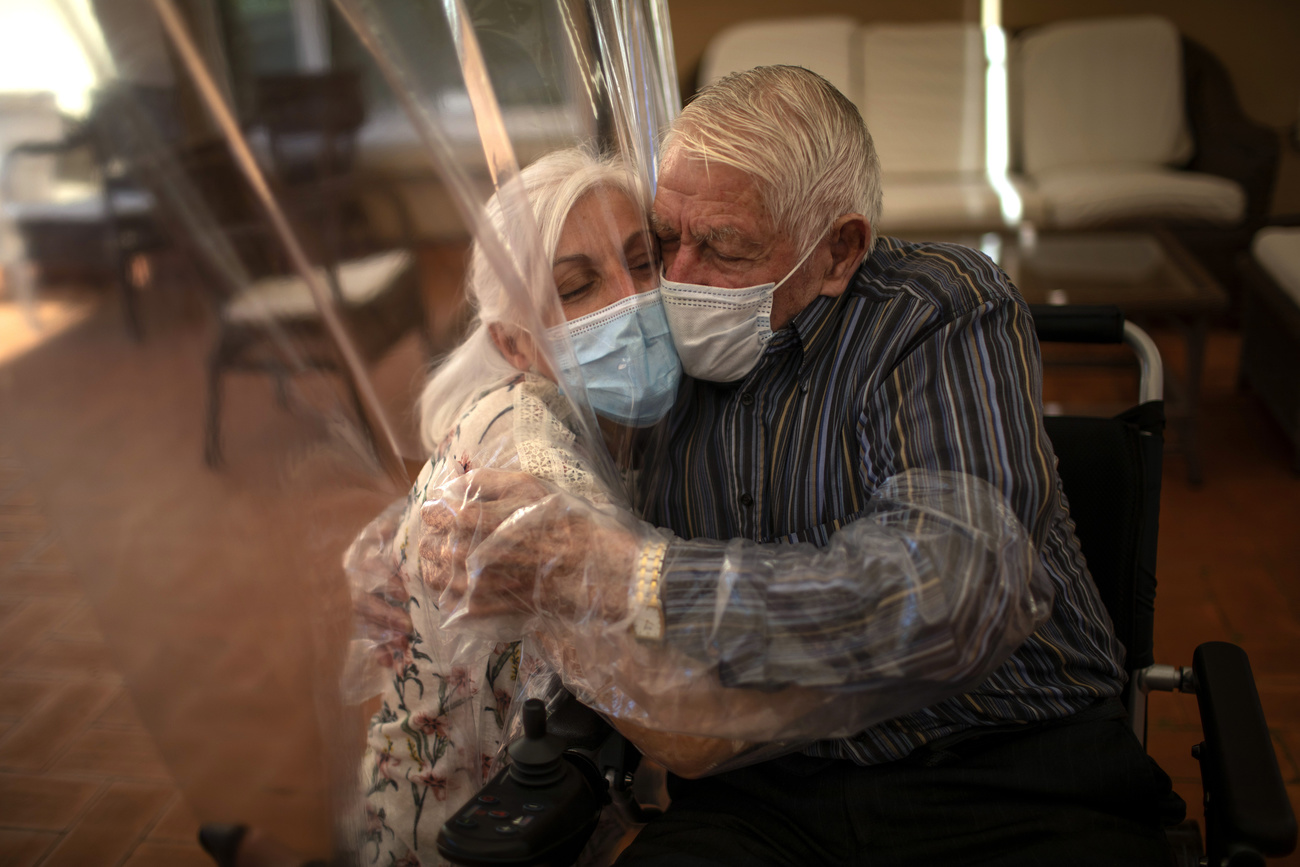
WHO opens annual meeting amid financial crisis

The World Health Organization (WHO) boss, Tedros Adhanom Ghebreyesus, says the Geneva-based UN agency has revised down its budget to $4.2 billion (CHF3.5 billion) for 2026-2027. He made the announcement at the start of the eight-day World Health Assembly meeting in Geneva of 194 member states.
+ Get the most important news from Switzerland in your inbox
The meeting opened without the United States and Argentina, which have decided to withdraw from the WHO. The UN agency’s ongoing financial crisis and the planned pandemic treaty are at the centre of the meeting in Geneva, which runs until May 27.
The US previously contributed around 20% of WHO’s budget. The agency has had to cut its planned two-year budget for 2026/27 by around 20% to $2.1 billion a year.
Tedros Adhanom Ghebreyesus said $2.1 billion a year was not much: such a sum is spent on defence equipment worldwide every eight hours, he commented.

More
US withdrawal from WHO puts global health in jeopardy
Drastic reduction of WHO staff
The WHO has been forced to cut top management jobs, from 14 to seven senior positions, and slash the number of internal departments from 76 to 34.
Among those leaving is Emergency Relief Coordinator Mike Ryan, who was a familiar figure during the Covid-19 pandemic. According to internal plans, the number of employees worldwide is set to drop by 20% from around 9,500.
The US must still pay to WHO around $130 million for 2025. However, it is unlikely the money will materialise. Their withdrawal will take effect at the beginning of 2026.

More
Switzerland pledges $80 million to WHO
Learning from pandemic
On Tuesday, the WHO Assembly plans to formally adopt the previously negotiated pandemic treaty. In the event of future pandemics, the global treaty is intended to avoid chaos in the procurement of protective material, such as during the coronavirus pandemic, when countries disputed each other’s masks. It should also ensure that rich countries do not hoard vaccines while poorer countries do not receive any.
But it is likely to be years before the convention comes into force. One of the most controversial issues has been shifted to an annex that has not yet been negotiated.
This concerns the conditions under which countries provide vaccine companies with dangerous pathogenic microorganisms or viruses and how they are compensated, for example with preferential deliveries of vaccines.

More
Pandemic treaty comes as welcome sign of multilateralism
Translated from French by DeepL/sb
We select the most relevant news for an international audience and use automatic translation tools to translate them into English. A journalist then reviews the translation for clarity and accuracy before publication.
Providing you with automatically translated news gives us the time to write more in-depth articles. The news stories we select have been written and carefully fact-checked by an external editorial team from news agencies such as Bloomberg or Keystone.
If you have any questions about how we work, write to us at english@swissinfo.ch.

In compliance with the JTI standards
More: SWI swissinfo.ch certified by the Journalism Trust Initiative




























You can find an overview of ongoing debates with our journalists here . Please join us!
If you want to start a conversation about a topic raised in this article or want to report factual errors, email us at english@swissinfo.ch.